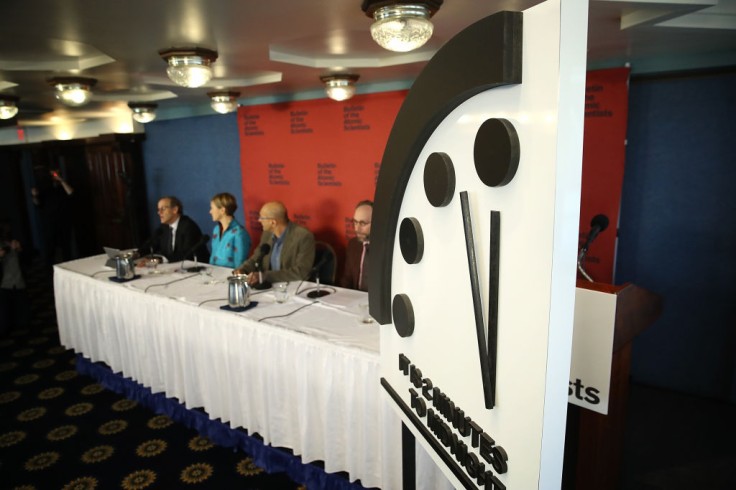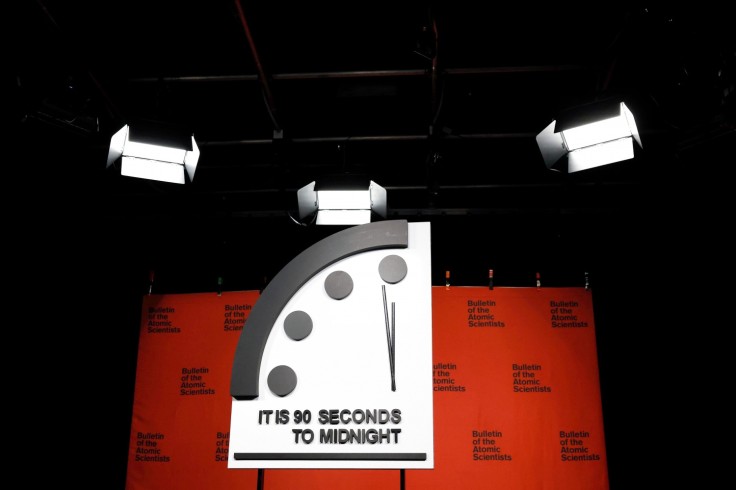Humanity has always been confrontational and aggressive since the dawn of time. We wrested control of huge swaths of land from the local wildlife to establish communities, to protect and conquer territories to either preserve our way of life or to simply stay alive.
Empires and kingdoms were established and crumbled through such means as the Roman Empire.
However, with the advent of modern warfare, humanity has developed weapons that could wipe out entire cities and possibly the whole world if left unchecked. Despite the MAD doctrine (Mutually Assured Destruction), some countries are still developing nuclear weapons that could travel across the world and cause billions of death and severe damage, while others are threatening other countries with them.
Because of these events, experts around the world could tell how close we are to armageddon and could make a visual representation of it for the average joe to know.
That is how the Doomsday Clock came to be.
What Is The Doomsday Clock?

The Doomsday Clock, according to the University of Chicago, is a physical metaphor that represents how close humanity is to self-destruction due to climate change or, most likely, nuclear weapons.
The Bulletin of Atomic Scientists, a group formed by Manhattan Project scientists at the University of Chicago, is responsible for setting the time on the clock. This group is the same one that helped develop the atomic bomb during the Second World War but protested against using it against people.
The group created the clock in 1947 when the only means of self-destruction at the time was atomic weaponry, which the Bulletin considered to be "the greatest danger to humanity." It was only in 2007 that the group included climate change and global warming in the equation.
However, CNBC's report mentioned that the time the clock tells also includes new disruptive technologies, such as biotechnologies.
When the clock was first established, the Bulletin said that the world is seven minutes till midnight, with midnight representing doomsday.
Over the years, the clock told different times, with its farthest to midnight being in 1991, when the Cold War was officially over and the 40-year-long East-West nuclear arms race ended.
Some people, such as Michael E. Mann, Presidential Distinguished Professor in the Earth and environmental science department at the University of Pennsylvania, found the clock as "an imperfect metaphor" due to it combining different types of risk that have different characteristics and occurring in different timescales, per CNN.
How Close Is Humanity To 'Midnight?'

Currently, the Doomsday Clock says that the world is 90 seconds to midnight - the closest humanity has ever been to total nuclear armageddon and self-destruction.
The Bulletin mentioned that the ever-increasing dangers of the conflict between Ukraine and Russia are the direct cause of the clock moving from 100 seconds to midnight to 90 seconds. It also doesn't help that Russia is also espousing thinly veiled threats of using its nuclear arsenal should it be backed into a corner.
UN Secretary-General Antonio Guterres warned in August 2022 that the world has entered "a time of nuclear danger not seen since the height of the Cold War."
Meanwhile, the threats posed by climate change as well as the breakdown of norms and institutions that reduce and prevent risks associated with biological threats like COVID-19 also played a role in the clock's moving.
Related Article : 5 Historical Documentary YouTube Channels You'll Want To Subscribe To









